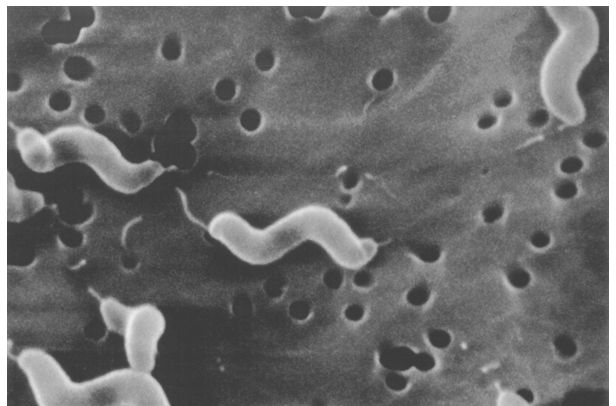If you’re unlucky enough to contract the campylobacter bacterium on holiday, you’ll find it difficult to enjoy your precious time away from work. While it’s associated with overseas resorts, it’s actually also the most common type of food poisoning in the UK.
The symptoms that are caused by the bacteria are the ones that are usually associated with food poisoning: diarrhoea, abdominal cramps, vomiting and fever. The illness can last anywhere between one day and a week. You can become infected by eating contaminated food or by coming into contact with infected pets or animals. It’s mostly found in raw meat so a good tip for avoiding it on holiday is using restaurants and resorts that have a good reputation for good kitchen hygiene.

In The UK
You can search on the Food Standards Agency’s website (www.ratings.good.gov.uk/business) to find out how high a standard a particular restaurant or food store has. Alternatively, you can download their free app for the iPhone or Android. If you want to receive updates and news from them, they also have a dedicated YouTube channel and Facebook and Twitter pages. If you’re holidaying in the UK, this site’s resources are a really useful way of confidently choosing a few places to eat.
Overseas
Sites such as Check Safety First (www.checksafetyfirst.com) claim to have checked thousands of hotels and resorts across the world against a set of specified standards. However, you may want to bolster this information with a review website such as Trip Advisor or Holiday Watchdog. If you’re going to a well known resort, the chances are that previous visitors will have commented on the cleanliness and food quality and may even have provided tips on how avoid illness.
Tips from the Health Protection Agency
The Health Protection Agency’s website (www.hpa.org.uk) has a full section on the campylobacter bacteria and what you can do to minimise the risk of contracting it. These are common sense precautions such as:
- Staying away from domestic or wild animals
- Cutting straight through the thickest part of any meat dish you order and ensuring that it’s cooked through before you eat
- Reducing the quantities of meat that you normally eat
- Avoiding unpasteurised milk or unchlorinated water
Using a combination of checks and tips from the above sources should help you to be more aware of bacteria such as campylobacter and to manage them if you or a family member suffers from them while on holiday.
If you have caught campylobacter food poisoning abroad it’s most likely to have come from the swimming pool or contaminated water/food. If it was caught on a package holiday you can claim compensation from your tour operator.

